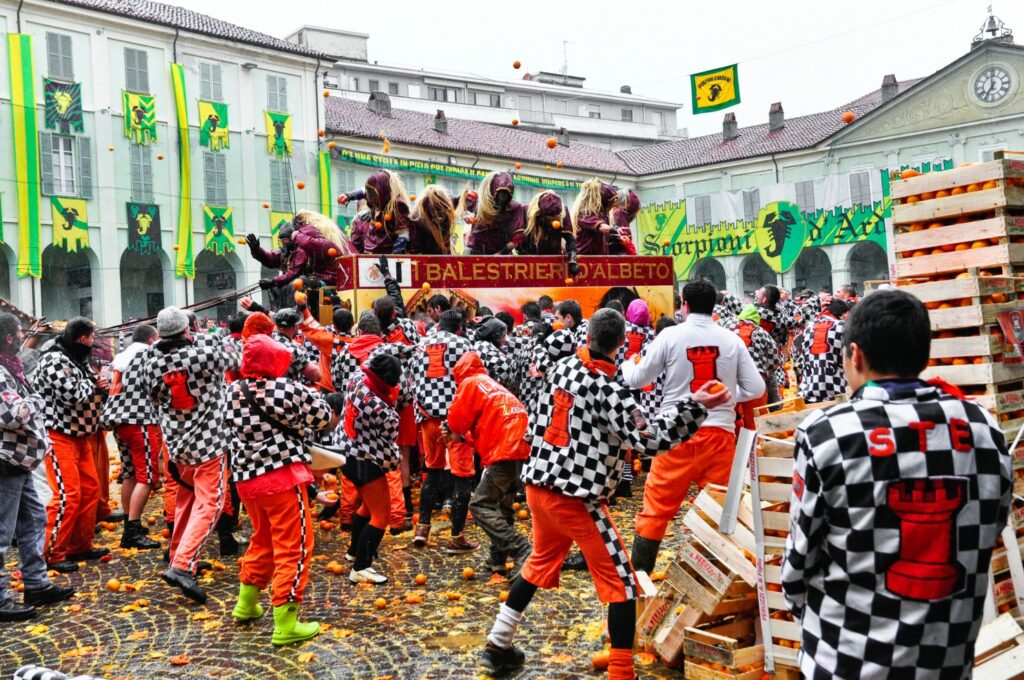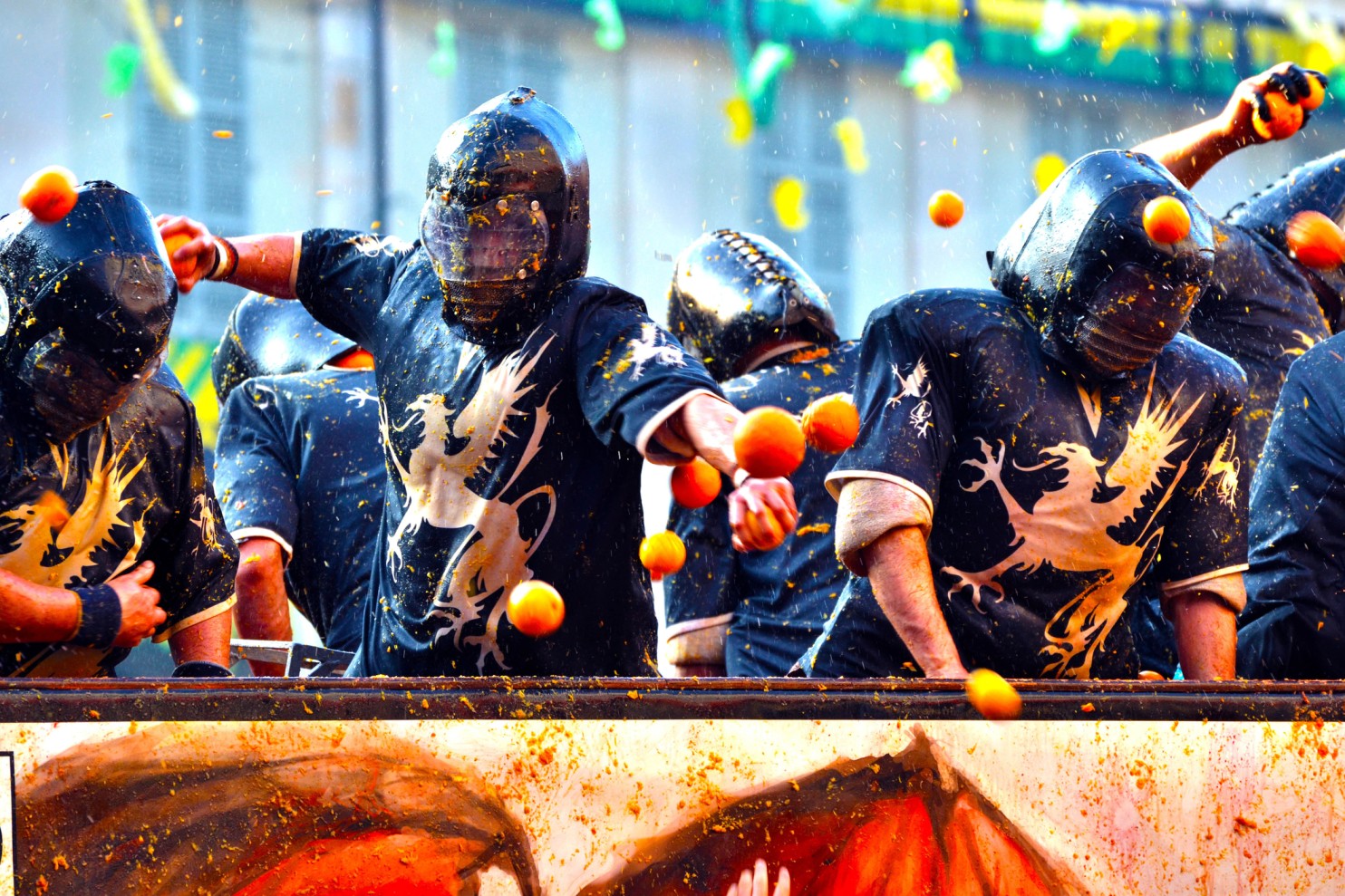The Battaglia delle Arance, or the Battle of the Oranges, is a unique and lively tradition held annually in Ivrea, a town in Italy’s Piedmont region. This event is part of the town’s historical carnival and takes place over three days, usually in February, leading up to Ash Wednesday. The festival commemorates a medieval tale of rebellion against tyranny, with origins that trace back to a 12th-century revolt against an evil lord.
According to the story, the lord had the right to spend the night with any newlywed woman, a claim that was violently rejected by a miller’s daughter named Violetta. She managed to decapitate the tyrant, which sparked a mass uprising among the townspeople. To honor their fight for freedom, the citizens of Ivrea reenact this battle through the throwing of oranges, which symbolize the stones and other medieval weapons used by the rebels against the lord’s henchmen.
The Battle of the Oranges involves thousands of participants, divided into nine combat teams on foot, representing the commoners, and several carted teams, symbolizing the tyrant’s guards. The participants on foot, known as aranceri, engage in a mock battle against those on carts, hurling oranges at each other: the event is a serious affair, with many participants wearing protective gear to avoid injury from the flying fruit. Despite the protective measures, it’s common for participants to sustain bruises and gashes from the oranges!

The festival not only serves as a lively and colorful spectacle but also as a communal celebration of Ivrea’s history and spirit of independence. The oranges used in the battle, which do not grow locally and must be imported, often from Sicily, become a symbol of the community’s unity and resistance against oppression. After the event, the smashed oranges are collected and used for compost, ensuring an eco-friendly disposal.
Visitors and locals alike love the spectacle, with the town’s population swelling with tourists eager to witness or participate in the festivities. To be on the safe side, spectators are advised to wear red hats to signal their non-participation and stay behind safety nets to avoid accidental hits by oranges.





























